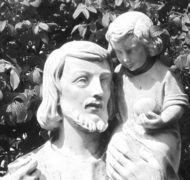Blessed are the Somebodies
Blog / Produced by The High Calling
Martin Luther King, Jr., was somebody. On that, few people disagree. Born in Atlanta in 1929, he whizzed through school, skipping both ninth and twelfth grades. His college entrance exam score was so high that he entered Morehouse College at fifteen, without formally graduating from Booker T. Washington High.
King earned a B.A. from Morehouse and entered Crozer Theological Seminary in Chester, Pennsylvania. Concurrently he studied at the University of Pennsylvania. He was president of the senior class, valedictorian; he received the Pearl Plafker Award for most outstanding student, a fellowship for graduate study, and earned a Bachelor of Divinity degree. Then he earned his doctorate in systematic theology at Boston University, while also studying at Harvard.
King's life achievements skyrocketed. Like others in his family before him, he became a brilliant Baptist preacher. He headed the Southern Christian Leadership Conference. Spearheaded the Civil Rights Movement. Led the Montgomery Boycott. Led the March on Washington. Received some twenty honorary degrees and hundreds of awards. Received the Nobel Peace Prize. King was assassinated in April 1968, a martyr. Later, a national holiday was established in his name.
Were these things what made him somebody?
In his preaching, King said that being somebody is a gift of God.
He spoke often about the worth of every person: "The woman or man who goes in (to the hospital) to sweep the floor is just as significant as the doctor. . . . Whoever cooks in your house, whoever sweeps the floor in your house is just as significant as anybody who lives in that house. And everybody that we call a maid is serving God in a significant way. I love the maids. I love the people who have been ignored. I want to see them get the kind of wages that they need. And their job is no longer a menial job, for you come to see its worth and its dignity." ("The American Dream," 1965)
For his notion of somebodiness, King relied on Scripture and the founding documents of the United States of America. He emphasized the nonviolent teachings of Jesus and what he called "the creative weapon of love." Some hated him for his eloquence. But many hearts were changed.
King was afraid of self-importance and self-righteousness. Yet he had a profound sense of calling. "And when God's word gets upon me, I've got to say it. I've got to tell it all over everywhere! And God has called me to deliver those that are in captivity." ("Guidelines for a Constructive Church," 1966)
Most of all, he recognized and preached what Jesus meant by greatness. "Everybody can be great, because everybody can serve. You don't have to have a college degree to serve. You don't have to make your subject and your verb agree to serve. You don't have to know Plato and Aristotle—Einstein's theory—the second law of thermodynamics—you only need a heart full of grace; a soul generated by love." ("The Drum Major Instinct," 1968)
Whatever his flaws (there were some), King was a prophet and a hero.
He showed us something about courage and listening to God's voice. He lived the high calling of his daily work.





